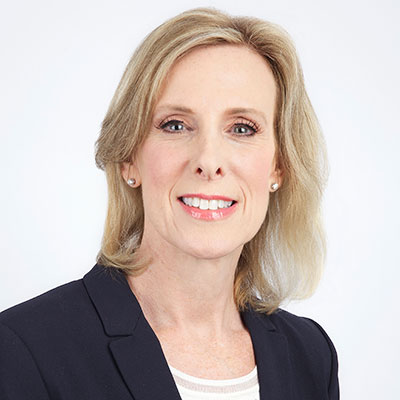Here’s How to Improve Your Women’s Health IQ

When it comes to healthcare, women are extremely important. They make 80 percent of household healthcare decisions. Plus, they’re the caretakers of their children, their partners and often their parents.
But what we learned from the MDVIP Women’s Health Survey is that many women are in the dark about common health issues and 79 percent said they face barriers that prevent them from taking better care of themselves.
As a woman and a physician, this worries me. Because women are the cornerstones of health in American families, when they face obstacles to care, it can affect more than themselves. In our survey, a fourth of women said they were worried about the financial cost of healthcare. Nearly one in three say they lack motivation to improve their health. And 35 percent of women under the age of 55 say they prioritize their family or their family’s health before their own.
As a mother, daughter and wife, I understand the burden we face as women – focusing on others before ourselves. But that makes taking care of ourselves all the more important — if we’re not healthy, who’s going to take care of our families?
But even more troubling, however, is the knowledge gap many women have about basic healthcare issues. For example, nearly 90 percent of women didn’t know that heart disease is the leading cause of death among women. Many women think it’s breast cancer, and while breast cancer is important, it kills 40,000 women a year. Heart disease kills 300,000. Another way to look at this: Breast cancer will cause 1 in 31 deaths among women in the U.S. Heart disease will cause 1 in 3 deaths.
Even when it comes to breast cancer, women aren’t sure what puts them at increased risk. For example, most women didn’t know that getting their period before age 12, never having a child, having dense breast tissue and consuming alcohol increase the risk of breast cancer.
There were other gaps, too, especially around women’s gynecological health. Women didn’t know that pap smears only test for one thing, cervical cancer. They do not test for endometrial or ovarian cancer.
Finally, women in our survey were blunt about primary care. While 89 percent said primary care doctors are an important resource for their health:
- Nearly half said scheduling an appointment was a chore.
- 44 percent put off seeing a doctor until their symptom were urgent.
- 31 percent say their concerns weren’t taken seriously by their physician.
- 1/3 said they felt rushed and couldn’t ask all their questions or had a condition that wasn’t properly addressed or diagnosed.
It all paints a scary picture, but there are solutions. First, as women, we need to do a better job educating ourselves, and that starts with a better understanding of what really puts us at risk. Then we need to take steps to reduce those risks. It’s okay to consider breast cancer but not if it means ignoring heart disease.
The good news: Many of the things that lower your risk for breast cancer – eating a healthy diet, losing weight, cutting back on alcohol – can also lower your risk for heart disease. That’s a win-win!
Second, we need to advocate for ourselves when we see our doctors. Most primary care doctors are busy. They have thousands of patients in their practices and have only a limited time to spend during each visit. That means they tend to focus on the most acute issue. But this isn’t enough. Here are some strategies you can use to get more out of your doctor’s appointments.
If those don’t work, you can change your physician. But make sure you aren’t changing one challenging situation for another. Find a physician who has time to develop a deeper relationship with you. Before you join their practice, see if you can talk to them and ask them questions about their approach to primary care and prevention, how long appointments last and whether they feel versed in the health issues that affect women your age.
Finally, don’t give up. Get motivated to take better care of yourself even when barriers crop up. Taking care of yourself is important to you and to the rest of your family.
